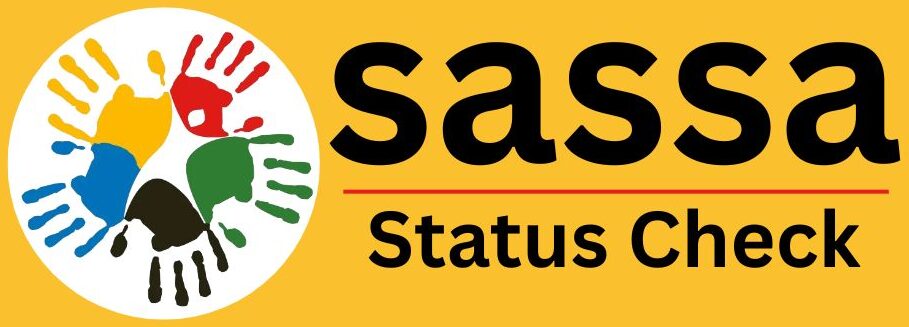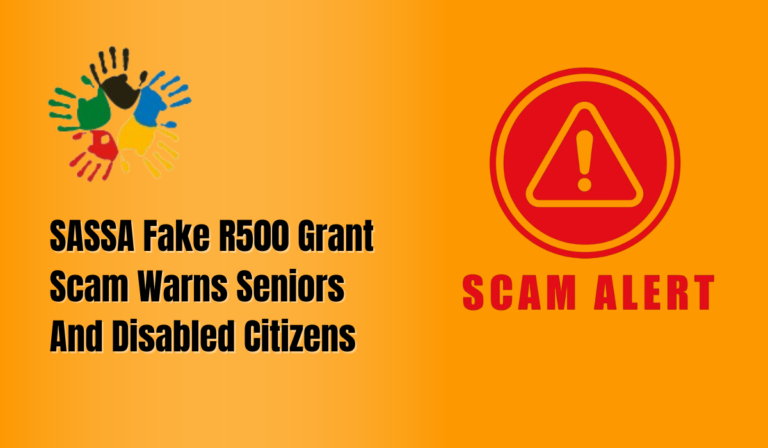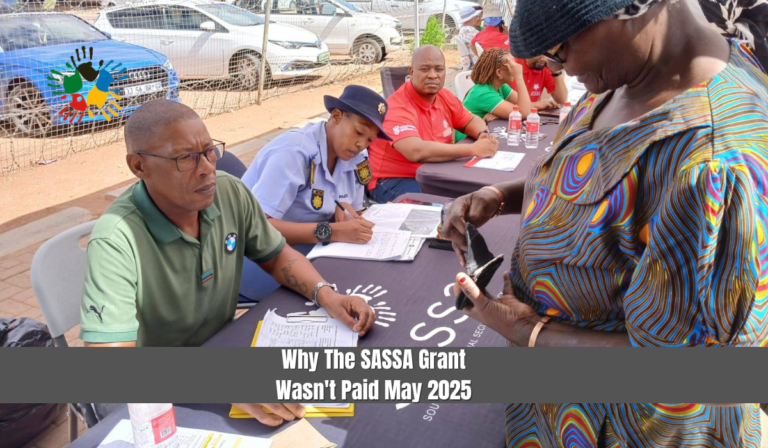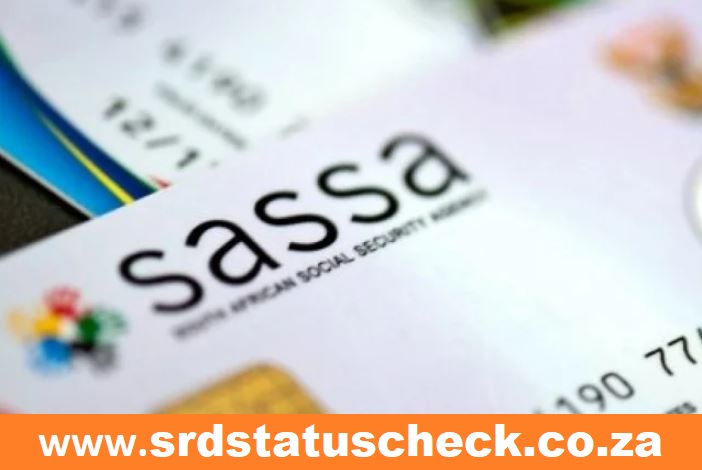SASSA Grants Lost Identity Theft For a Gugulethu Pensioner
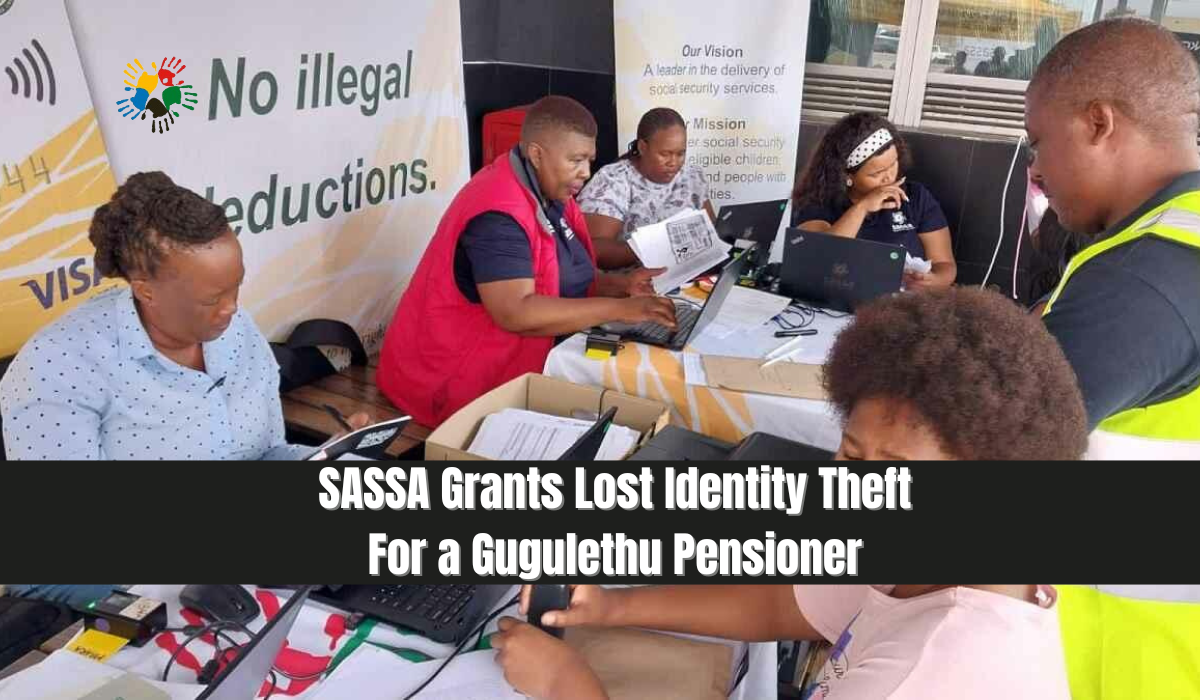
SASSA Grants Lost Identity Theft For a Gugulethu Pensioner. Identity theft has become a growing concern in South Africa, affecting vulnerable citizens who rely on the South African Social Security Agency (SASSA) for financial support. One such victim is Khakhaza Silimela, a 63-year-old pensioner from Gugulethu, who has been deprived of his rightful pension due to fraudulent activities.
This case highlights the pressing issue of SASSA grant fraud, how it affects individuals, and what measures the government is taking to combat such crimes. This article delves into how identity theft occurs, the challenges faced by victims, the role of SASSA, and what beneficiaries can do to protect themselves from falling victim to similar scams.
Identity Theft and SASSA Grant Fraud
How Did Identity Theft Affect the Gugulethu Pensioner?
Silimela, a former bus driver, was eligible for a SASSA pension grant three years ago but only applied for it in January 2024. Upon application, he was shocked to learn that someone else was already receiving his money. This unknown person, based in Gauteng, had all his personal details, including his name, ID number, and birth details, except for the address.
This fraudulent activity left Silimela without any source of income, making it difficult for him to survive. His situation worsened when he realized that each time he approached SASSA officials, he was given conflicting information, causing further frustration.
Why Do Identity Theft Cases Happen?
There are several reasons why identity theft occurs in SASSA grant applications:
- Weak Security Measures: Some fraudsters access personal details through hacked databases or stolen documents.
- Data Breaches: Criminal syndicates target government systems to obtain ID numbers and grant details.
- Insider Fraud: Some SASSA employees may be involved in fraudulent activities, altering records to approve payments to unauthorized beneficiaries.
- Lack of Awareness: Many victims do not realize that their identity has been stolen until they apply for a SASSA grant.
SASSA Response to Grant Fraud
SASSA acknowledges that identity theft is a significant problem but maintains that efforts are being made to address the issue.
Measures Taken by SASSA to Prevent Fraud
According to SASSA Spokesperson Paseka Letsatsi, victims of fraud should take immediate steps to report such cases. The agency has outlined a series of security measures to reduce fraudulent claims, including:
| Security Measures | Description |
|---|---|
| Enhanced Biometric Verification | Using fingerprints and facial recognition for applicant verification. |
| Fraud Investigation Units | Dedicated teams to investigate suspicious transactions. |
| Cross-Checking ID Information | Matching applicant details with Home Affairs records. |
| Public Awareness Campaigns | Educating beneficiaries on how to protect their identity. |
| Digital Grant Application Monitoring | Tracking applications for irregular activities. |
Fraud Cases and Resolutions
SASSA claims that fraud incidents, while serious, are not as widespread as they seem. The Acting SASSA Chief Executive, Themba Matlou, provided a report on fraud investigations for the 2023/2024 financial year:
- Total Fraud Cases Reported: 138
- Cases Resolved: 123
- Pending Investigations: 15
Matlou reassured the public that SASSA is actively working to track down fraudsters and prevent future scams from occurring.
How Can SASSA Beneficiaries Protect Themselves from Identity Theft?
If you are a SASSA grant recipient, it is crucial to take measures to protect yourself from identity theft. Below are some essential steps to safeguard your grant:
Regularly Check Your SASSA Status
- Visit www.sassa.gov.za to verify that your grant is correctly registered under your details.
- If you notice any discrepancies, report them immediately.
Report Any Suspicious Activity
- If you suspect that someone is using your identity, report it to SASSA and law enforcement agencies.
- File a case at your nearest police station for an official investigation.
Keep Your Personal Information Secure
- Do not share your ID number, bank details, or personal information with anyone over the phone or online.
- Be cautious when filling out grant application forms in public spaces.
Visit SASSA Offices for Assistance
- Always visit an official SASSA office for application queries.
- Avoid dealing with individuals who claim they can “speed up” your grant application.
Be Aware of Common SASSA Scams
Many scammers trick beneficiaries into sharing personal information. Some common scams include:
| Type of Scam | How It Works | How to Avoid It |
|---|---|---|
| Fake SMS Alerts | Scammers send messages claiming your grant is suspended. | Never respond to messages asking for personal details. |
| Impersonation Calls | Fraudsters pretend to be SASSA officials and ask for ID numbers. | Hang up and report the number to SASSA. |
| Phishing Emails | Emails with fake SASSA logos ask you to update details. | Do not click links; instead, visit SASSA’s official website. |
Legal Actions Against SASSA Fraudsters
SASSA, in collaboration with law enforcement agencies, is actively pursuing criminal charges against identity thieves. Those caught engaging in fraudulent activities face serious legal consequences, including:
- Fines up to R100,000 for fraudulent claims.
- Up to 15 years in prison for identity theft and fraud.
- A lifetime ban from receiving any government grant.
The South African Police Service (SAPS) and the National Prosecuting Authority (NPA) have been working with SASSA to strengthen fraud detection and ensure that justice is served.
Conclusion
The case of Khakhaza Silimela is a clear reminder of the devastating impact of identity theft on vulnerable South Africans. While SASSA is making strides in reducing fraud, more needs to be done to strengthen security systems and protect innocent grant recipients.
